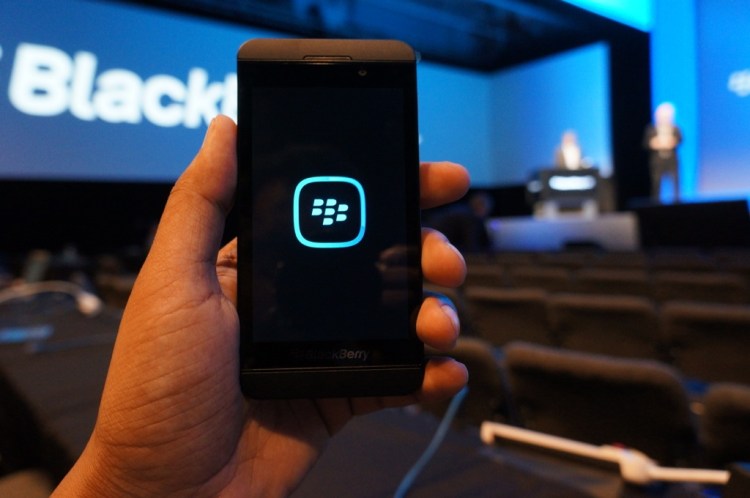Don’t be surprised by any major business shifts from BlackBerry — because there will likely be many.
Under new CEO John Chen, the former smartphone giant is now keenly aware of its precarious financial position, and it seems like it will do whatever it takes to survive. Chen’s recent admission to Reuters that he’s willing to have BlackBerry exit the handset business if necessary makes this clear.
Update: In a blog post this morning, Chen “clarified” that he has “no intention to sell off or abandon” the handset business anytime soon. His statement to Reuters seemed clear, though, and I would wager he’s just covering himself from angry investors with his response.
Today’s BlackBerry is no longer trying to relive past glories — a world before the iPhone and Android, where BlackBerry was the top smartphone solution for businesses. The company’s past hubris seems to have transmogrified into utter desperation, where anything is possible if it helps to stem losses.
“You have to live short term,” Chen told Reuters. “Maybe the prior management had the luxury to bet the world would come to it. I don’t have the luxury at all. I’m losing money and burning cash.”
Now the company is working hard to monetize its popular BlackBerry Messenger client on the iPhone and Android. It’s even restarted production of the Bold 9900, which was released back in 2011 and remains popular.
Chen also tells Reuters that the company is exploring merger and acquisition opportunities around security, and it’s building security-focused teams for its devices and services. That could help BlackBerry retain its place as the go-to secure smartphone option for governments and businesses (the White House is reportedly testing Samsung and LG Android phones).
To be fair to BlackBerry’s former CEO, Thorsten Heins, Chen came aboard as the company finally seemed willing to take control of its fate. BlackBerry rejected buyout offers last fall, but it took a $1 billion investment from Fairfax Holdings and hired Chen to turn things around. That was only a few months after BlackBerry posted a $1 billion loss, a shift away from the consumer market, and 4,500 layoffs.
The company followed up that earnings report with a $4.4 billion loss for the third (fiscal) quarter of 2014, which reflected all of the time it wasted considering potential suitors and not actually selling phones.
Now that it’s a leaner operation, BlackBerry may finally be able to turn itself around. For its last earnings report in March (the first time Chen was CEO for the entire quarter), the company reported only a $42 million loss, which was actually less than what analysts expected. It also announced plans for three “high-end” smartphones sporting its iconic keyboard. But given the company’s inability to sell its most recent BlackBerry 10 devices, there’s a good chance those will be the last phones we see from BlackBerry.
VentureBeat's mission is to be a digital town square for technical decision-makers to gain knowledge about transformative enterprise technology and transact. Learn More

